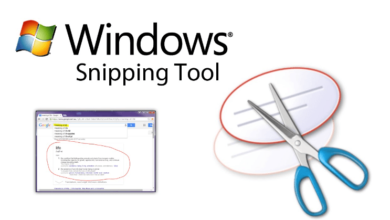How to Leverage Website Data for Improved eCommerce Sales

In today’s competitive digital landscape, eCommerce businesses must leverage website data to make informed decisions about their marketing strategies, user experience, and overall business operations. By analyzing website data, companies can gain valuable insights into consumer behavior, preferences, and needs, which can be used to optimize their online store and increase sales. Here are some tips for leveraging website data to improve eCommerce sales:
Analyze Website Traffic
One of the most critical pieces of data to analyze is website traffic. By understanding how visitors navigate your site, which pages they spend the most time on, and which products they view, you can make informed decisions about your site’s design, content, and product offerings. Google Analytics is a powerful tool for tracking website traffic and can provide valuable insights into user behavior.
Monitor Conversion Rates
Conversion rate is the percentage of website visitors who make a purchase. By monitoring conversion rates, eCommerce businesses can identify which products are popular with customers, which pages are most effective at driving sales, and where potential roadblocks to conversion exist. This information can be used to optimize product listings, streamline the checkout process, and improve overall website performance.
Use A/B Testing
A/B testing involves testing two web page versions to see which performs better in terms of engagement and conversion rates. By experimenting with design elements, messaging, and calls to action, eCommerce businesses can determine what resonates most with their target audience and optimize their site accordingly.
Personalize the User Experience
Personalization involves tailoring the website experience to individual users based on their behavior, preferences, and interests. By using data such as browsing history, search queries, and purchase history, eCommerce businesses can create a more relevant and engaging experience for their customers. This can lead to increased sales, higher customer satisfaction, and greater brand loyalty.
Offer Targeted Promotions
By analyzing purchase history and user behavior, eCommerce businesses can offer targeted promotions and discounts to customers. This can help incentivize repeat purchases and encourage customers to try new products. Email marketing, social media advertising, and on-site messaging can offer personalized recommendations and promotions.
Improve Site Speed
Site speed is a critical factor in eCommerce sales. Slow-loading pages can lead to high bounce rates and lost sales. By monitoring site speed and identifying areas for improvement, eCommerce businesses can ensure that their site performs optimally. Fully managed Magento hosting providers, like Nexcess, can offer robust infrastructure and support to ensure that eCommerce sites run smoothly and efficiently. Magento hosting can be essential for maintaining an effective digital infrastructure and securing your site. Nexcess offers expert hosting services that take all the technical stress out of designing, operating, and maintaining an eCommerce site. Quickly scale and secure your digital infrastructure as your business grows with managed hosting.
Optimize for Mobile
With more than half of all online shopping now taking place on mobile devices, eCommerce businesses need to optimize their sites for mobile. This includes using responsive design, ensuring that pages load quickly, and making it easy for customers to navigate and make purchases on smaller screens.
Use Social Proof
Social proof refers to the idea that people are more likely to purchase if they see that others have done so before them. By featuring customer reviews, ratings, and testimonials on product pages, eCommerce businesses can build trust and credibility with their audience and increase the likelihood of conversion.
Stay Continuous and Compliant
Leveraging website data is an ongoing process. eCommerce businesses should continuously monitor and analyze their website data to stay up-to-date with customer preferences and behavior. As consumer behavior and technology evolve, eCommerce businesses must adapt and optimize their online stores accordingly.
Additionally, it’s essential to keep data privacy and security in mind when leveraging website data. eCommerce businesses must ensure that they collect and store customer data in compliance with regulations such as GDPR and CCPA. They should also protect customer data from unauthorized access by implementing strong password policies and encryption.
Leveraging website data is crucial for eCommerce businesses looking to optimize their online store and increase sales. Companies can gain valuable insights into consumer behavior by analyzing website data and making data-driven decisions to improve their bottom line. By investing in website data analysis and optimization, eCommerce businesses can stay ahead of the competition and thrive in today’s ever-changing digital landscape.




